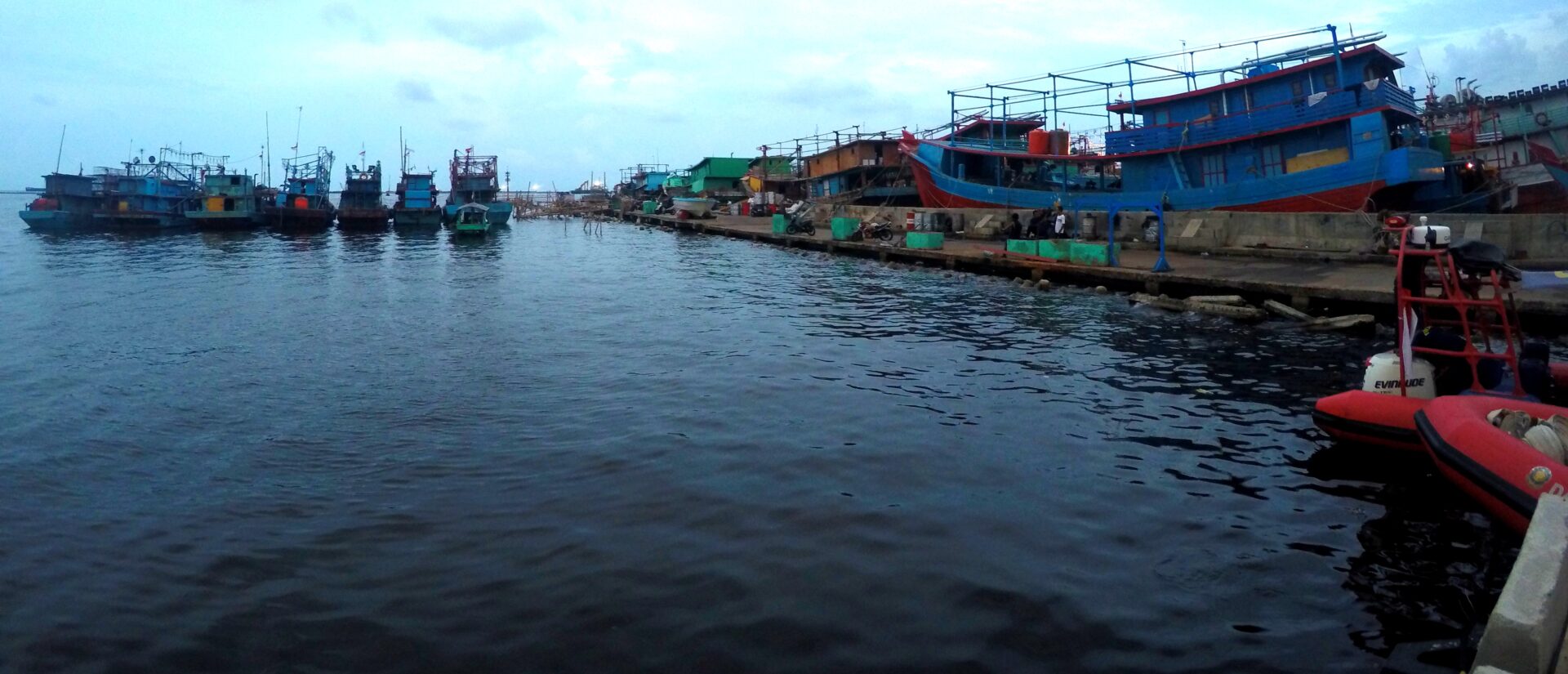
Indonesian giant sea wall project pseudo-solution for Jakarta Bay
Dubious role for Dutch government and business
This content is available after accepting the cookies.
View on Youtube. Opens in a new window
Jakarta is sinking. Excessive groundwater extraction is causing the metropolis to sink by dozens of centimetres each year, making it more vulnerable to flooding. Dutch businesses have come up with a solution: an immense sea wall on the coast, which is also a stunning real estate project. But this intervention is just a pseudo-solution, say researchers from Both ENDS, Stichting Onderzoek Multinationale Ondernemingen (SOMO) and the Transnational Institute (TNI) today in a new report. Even worse, the project threatens the livelihoods of tens of thousands of people employed in local fisheries.
“A solution must be found – that’s clear”, says Katrin McGauran of SOMO, “But no measure taken will have any effect if the sinking of the city isn’t stopped first. The sinking is caused by the fact that everyone, including businesses, pumps up their drinking water from underground. The huge infrastructural project proposed by the Dutch companies won’t solve this problem”.
Development cooperation?
Late 2015, the Dutch government granted a consortium of Dutch businesses 8 million euros to further develop the plan for the Indonesian government. Of this sum, 7.5 million euros originated from the Dutch Ministry of Development Cooperation. A sum of 3.9 million euros from the same source was previously granted to the plan.
The National Capital Integrated Coastal Development project (NCICD) has proposed building a giant dike before the coast of Jakarta, combined with the creation of an artificial island, on which a new city district will be built. The project will be financed through real estate sales. The investment required could be as high as US$40 billion.
No voice for local people
Ten thousand people employed in the fisheries sector in Jakarta fear that the Indonesian mega-dike will cause them to lose their livelihoods. Fishers informed SOMO, Both ENDS and TNI that they have already lost income due to the present construction of artificial islands in the bay, in which Dutch companies are involved. Once the dike is built, the fishers will no longer have free access to the open sea.
According to Satoko Kishimoto of TNI, privatisation of the water supply in Jakarta, 18 years ago, worsened the problems: “By taking back management of the water supply, Jakarta would be able to solve this urgent problem much more quickly. The Dutch government could play an important part in this”.
In 2016, the ‘Save the Jakarta Bay Coalition’, which has united fishers with others who are also affected since 2014, sent two letters to Dutch Prime Minister Mark Rutte to express concerns regarding the NCICD and to request that the Netherlands exert pressure on the Indonesian government. But until now, there has been no official response. The fishers and residents have not been sufficiently consulted in the project and their interests were never properly taken into account.
Polluted lagoon
The mega-dike threatens to turn Jakarta Bay into a large, polluted lagoon. Moreover, in order to realise the dike and the new city district, large quantities of sand are needed. This will further stimulate illegal sand mining, which is already a problem for Indonesia. Illegal sand mining causes serious damage to invaluable ecosystems such as coral reefs.
Double standards
“In supporting Dutch businesses abroad, it would be only logical if the Dutch government applied the same standards as in the Netherlands”, says Giacomo Galli, who maintains contact for Both ENDS with the fishers’ organisations. ‘”The consequences of the project for people and their environment should be properly considered, local residents should have a say, and they should be compensated for damages suffered. These procedures are the norm in the Netherlands. The Dutch water sector could make a difference by insisting on these procedures in such a large-scale international project as well.”
Do you need more information?
-

Jasper van Teeffelen
Researcher
Partners
Related news
-
 CSDDD Datahub reveals law covers fewer than 3,400 EU-based corporate groupsPosted in category:News
CSDDD Datahub reveals law covers fewer than 3,400 EU-based corporate groupsPosted in category:News David Ollivier de LethPublished on:
David Ollivier de LethPublished on: -
 Additional evidence filed against Booking.com for profiting from illegal settlementsPosted in category:News
Additional evidence filed against Booking.com for profiting from illegal settlementsPosted in category:News Lydia de LeeuwPublished on:
Lydia de LeeuwPublished on: -
 The hidden human costs linked to global supply chains in ChinaPosted in category:News
The hidden human costs linked to global supply chains in ChinaPosted in category:News Joshua RosenzweigPublished on:
Joshua RosenzweigPublished on:

